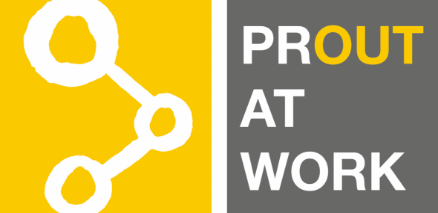
INTERVIEW WITH DR. JEAN-LUC VEY ON THE START OF NOMINATIONS FOR THE PROUT PERFORMER-LISTS
“LISTS LIKE PROUT PERFORMER SHOW THAT IT IS POSSIBLE TO TALK OPENLY ABOUT your SEXUAL orientation AND GENDER IDENTITY AND BE SUCCESSFUL IN YOUR CAREER AT THE SAME TIME.”
Hello Jean-Luc. Thank you for your time and for giving us the opportunity to do this interview. PROUT AT WORK is publishing the new PROUT PERFORMER lists for the first time this year. How does it come about?
Jean-Luc Vey: First of all, I would like to thank everyone involved in GERMANY’S TOP 100 OUT EXECUTVES for making the list as successful as it has been over the last three years. Those are mainly the role models who made it onto one of the lists, but also every single nominee. I would also like to thank those who nominated their colleagues and people they know. Above all, I would like to especially thank the jury and our cooperation partners.
They have all contributed a great deal to the visibility of the LGBT*IQ community in Germany. The lists have shown that it is possible to be open about one’s sexual orientation or gender identity in everyday working life without experiencing negative career consequences. With their commitment to equal rights and equal opportunities for LGBT*IQ people at work, those who made it onto the list serve as role models for the entire LGBT*IQ community and beyond.
PROUT AT WORK terminated the collaboration with our partner at the end of the year. However, the visibility of LGBT*IQ at work is still very close to our hearts. Therefore, we have decided to continue the lists with a new name, to further develop them and to publish them on our own in 2021. Being out in the workplace should be the rule and not the exception. We will continue to work for this in the future with our various projects.
Why are these lists so important?
Jean-Luc Vey: As already mentioned, this is mainly about visibility. Studies continue to show that many LGBT*IQ students go back into the closet once they start their professional lives, out of fear that coming out will have a negative impact on their careers. Lists like PROUT PERFORMER show that it is possible to be open about your sexual orientation and gender identity and be successful in your career at the same time. This helps others to have the confidence to come out as well. And this in turn has been proven to have positive effects on mental health and productivity at work.
What is the difference between the new PROUT PERFORMER-lists and the former TOP 100 OUT EXECUTIVE lists?
Jean-Luc Vey: In order to make the PROUT PERFORMER-lists even more attractive, we first carried out a survey among old candidates to find out where they felt there was still room for improvement. We took this feedback to heart in the following redesign and incorporated it into the structure of the new lists. Therefore, we now have more distinct categories in the PROUT PERFORMERS-lists and for example have created a separate list for SMEs. In addition, Executive Allies are now also being recognised on a special list. Another new aspect is that we only rank the top places on the list, as we do not want to create competition between the individual candidates.
But why rank the top places anyway?
Jean-Luc Vey: This is because there are still some people who have done particularly outstanding work for LGBT*IQ equality at the workplace over the past year – with important initiatives, new projects or other activities. We would like to give them special attention by highlighting them at the top of the list.
What part does the PROUT PERFORMER jury play in this?
Jean-Luc Vey: We spoke with the jury ahead of redesigning the lists, too. We are very proud to have won such top-class people for the project again. But we are also aware that due to their important roles in their companies, they often do not have the time to evaluate each candidate individually – this was also expressed in their direct feedback.
Therefore, the first evaluation will be carried out by the PROUT AT WORK-Foundation, which will use the information and criteria submitted to determine who will earn a spot on the list and who, because of their exceptional achievements, will have a chance to reach one of the highest-ranking positions. These people are then asked to introduce themselves to the jury through a short video clip, and the jury then determines the top positions. This way we were able to secure the prominent jury members and still ensure an attractive evaluation process for the nominees.
How can people nominate their role models for the PROUT PERFORMER-lists?
Jean-Luc Vey: Nominations are now accepted through our website. It can be found at proutperformer.de. We are looking forward to all nominations and to creating more visibility for LGBT*IQ at the workplace together with our community.
Thank you for this interview, Jean-Luc!
Beyond male perpetrators and female victims
The keyword domestic violence is mostly associated with heterosexual relationships and a clear distribution of roles. The prevalence of violence in LGBT*IQ relationships, on the other hand, receives little public attention. Only in the last few years has the topic begun to appear in scientific studies.
On one hand, this may be due to the fact that women are indeed more often victims of domestic violence. But on the other hand, the lack of attention to the issue is also rooted in our stereotypical gender image and the ongoing discrimination against LGBT*IQ people. Domestic violence in non-heterosexual relationships is thus doubly taboo.
Violence has many faces
Especially the fact that violence is not always visible to the outside world often makes it difficult for victims to get help in time. This is because domestic violence rarely begins with a fist punch. Psychological abuse, which often precedes physical assaults, also falls under the term domestic violence, as do sexual assaults of various kinds. In violent relationships, the violence used often increases in intensity and various forms of violence intertwine.
More violence in lesbian and gay partnerships?
Violence is also not uncommon in partnerships that do not conform to the heterosexual relationship model. Studies show that people in homosexual relationships are affected by domestic violence just as often or even more often than those in heterosexual partnerships. Bisexual or trans* people are not covered by the already thin body of studies. However, it can be assumed that the situation within partnerships of these people is similar.
Men in particular rarely seek help because of the prevailing stereotype of the “dominant man. Yet homosexual men are just as often victims of intimate partner violence as women. A U.S. study concluded that almost half of all homosexual men – 46 percent – suffer from some form of partner violence.
In general, the number of unreported cases of sexual violence is high. For many people who experience violence in their relationship, the shame and fear of making their suffering public is huge.
Women do not fit the typical perpetrator image
If the violence is inflicted by a woman, it is often even more difficult for those affected to seek help. Because women do not fit the typical perpetrator image, violence in lesbian relationships is still strongly tabooed, and complaints from affected persons are often not taken seriously.
Women – in line with the typical cliché image – are often attributed a rather gentle disposition and a pronounced need for harmony. However, domestic violence is unfortunately not uncommon in lesbian relationships either. Angela Schwarz of the Vienna Anti-Discrimination Agency for Same-Sex and Transgender Lifestyles (WASt) further explains in an interview with the Austrian feminist magazine an.schläge that only three to five percent of those affected in lesbian relationships seek help. In heterosexual relationships, 20 to 24 percent do. Male victims of domestic violence by women also rarely come forward with their experiences.
Counseling services for LGBT*IQ-people are meager
In general, there are only a few support programs and counseling services that explicitly address those affected within the LGBTIQ-community. Even though trans women are generally welcome in German women’s shelters, the Frauenhauskoordinierung e.V. recognizes that there are “large gaps” in support for trans* women experiencing violence. The same applies to male victims of domestic violence.
The Broken Rainbow association, which advocates for lesbian and trans* women and queer people affected by violence, states in its 2019 annual report that “many clients have had negative experiences in general counseling or mental health care” because they experience discrimination of various kinds due to their gender identity. Precisely because LGBTIQ people often experience little understanding anyway due to their deviation from the binary or heterosexual “norm,” special counseling services and protective programs against domestic violence are especially important for these individuals. Help for those affected is offered, for example, by the MANEO project (for gay people affected by violence) or the gewaltfreileben counseling center (for women, lesbians, trans and queer people).
Speaker
Speeches
Acceptance not tolerance
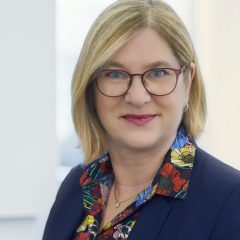
Dr. Sabine Nikolaus,
Country Managing Director Germany,
Boehringer Ingelheim
“We at Boehringer Ingelheim support a culture of inclusion, diversity and appreciation, where people’s differences are valued and respected. We want our people to feel comfortable, so that they can unfold their full innovative power.”
Let’s talk about intersectionality, baby – A personal report
“There is no such thing as single-issue struggle, because we do not live single-issue lives”, says Audres Lorde and is absolutely right. The lines of life are different and varied and no dimension of diversity stands on its own. What does multiple discrimination mean in everyday life and why can privileges and oppression not be offset? A report from a quota refugee.

Nikita Baranov,
Executive Assistant to CHRO,
METRO AG
“For me, intersectionality is a description of the reality I live in, a concept that has never been a concept in my life. But it clearly shows me, that forms of discrimination never stand on their own and if we do not see them, we can not solve them.”
for more togetherness during covid-19
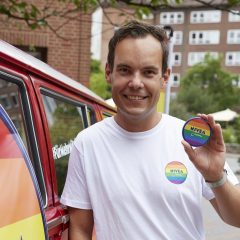
Piotr Specht,
Global Junior Brand Manager,
Beiersdorf AG
“We want to be there for everyone, anytime – especially during this challenging time. This is true externally with our brand NIVEA and also true internally with our network Be You. During Covid-19 being there for everyone has become more difficult, this is why we implemented an online and offline pride week #PRIDEINSIDE in order to show We are here for you, no matter who you are and who you love.”
The DIVA Survey: LGBTQI Women’s Insight 2020
As part of the first ever Lesbian Visibility Week, DIVA Media Group teamed up with Kantar to bring you The DIVA Survey: LGBTQI Women’s Insight 2020. The results of this brand new piece of research capture the diversity of our community, highlight the unique challenges we face as women-loving women and shine a light on an often under-researched group.
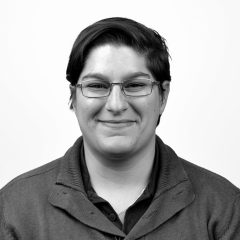
Sophia Papadopoulos,
Business Analyst and Global Head,
Pride@Kantar
“There were many really interesting findings within the research: Firstly, the disparity of visibility in the LGBTQI community. Secondly, the differences across age in terms of the language we use and the age at which people come out and thirdly, the experiences of LGBTQI parents and their children.”
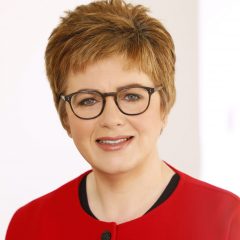
Margot Slattery,
Global Chief Diversity & Inclusion Officer,
Sodexo Group
“The different diversity dimensions of Diversity and Inclusion at Sodexo mean so much to all of us at the company, they represent our heart and the people who are the core of our organisation and all of our different traits, background and abilities. They help us to understand who we are and what we need to do ongoing to be sure people feel they are included and belong.”
Panel: Intersectionality
Moderation: Yara HOffmann
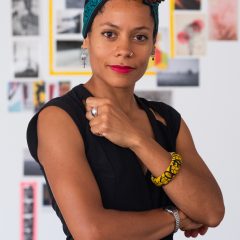
Emilia Roig,
Founder & Executive Director
of the Center for Intersectional Justice (CIJ)
“Intersectionality is not an option, it is the only solution to overcome oppression and eradicate social inequality. Intersectionality is easy to implement: it means fighting discrimination within discrimination, making inequalities within inequalities visible, and empowering minorities within minorities”.
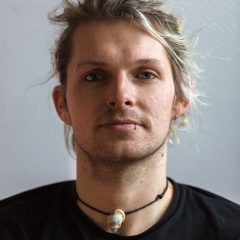
Blu Doppe,
Education consultant, anti-discrimination and diversity trainer and trainer for the theatre of the oppressed
“To incorporate intersectional and queer_feminist perspectives into my work means for me: I am always learning new things and I am constantly changing and questioning my perspectives.”
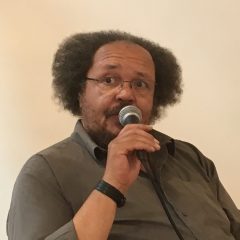
Tsepo Bollwinkel,
Trainer and Activist
“I fight for the perception and centering of human rights, needs and demands of people pushed to the fringes by our society. In my professional, I focus on, racism, sexism, classicism, heteronormativity, bisexuality and north/south hierarchies in inequality and injustice Marginalized. The intersectional view of the entanglement of inequalities both in biographies and in social structures is particularly important to me.”
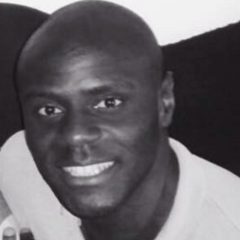
Louis Tongbong-Thomson,
Senior Associate Diversity & Inclusion,
PwC Deutschland GmbH WPG
“With D&I, it ultimately depends on inclusion – acceptance and the respectful and successful coexistence of the various components of a given group of people or organization. Reaching this goal is not a sure-fire success, so people should deal with the peculiarities of these different groups of people, get to know them, understand and act accordingly. Otherwise there is a risk of splitting what should unite us, which would endanger us in the long term.”
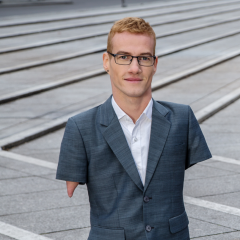
Janis McDavid
“I want to live in a world, in which features that distinguish us do not lead to discrimination. In other words, in which it does not matter how we look, where we come from and what prerequisites we have. Here, I see the concepts of intersectionality and personal responsibility as central to standing up for this vision.”
Panel: inclusive language
Moderation: Yara HOffmann

Emily Scholle,
Diversity & Inclusion Program Managerin,
IBM
“Together with a project group of dedicated volunteers I worked on a guide for inclusive language. In this way, we are covering many perspectives and involving the employees to whom we are giving these recommendations from the very beginning. The current focus of the guide is on the topic of gender-sensitive language, further aspects such as racism and disability will follow step by step.”
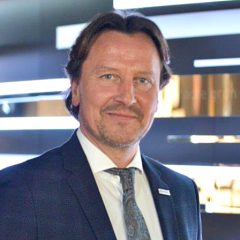
Olaf Guttzeit,
Head of CoE Life Balance & Disability,
Boehringer Ingelheim
“Language changes culture and culture affects language. In my case, the use of inclusive language has raised my awareness on how I communicate. I do make a more conscious effort in order to avoiding the exclusion by my communication. This also includes the topic of barrier free communication, for example for people with (dis)abilities.”
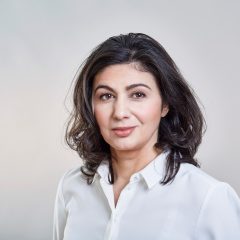
Hatice Akyün,
Journalist
“There is a turkish saying: “The tongue is sharper than a sword.” I am very aware of this, when I write my texts and columns. What effect do my words have on my counterpart? Am I at eye level? What is my intention? I ask myself these questions as a journalist.”

Linda Gondorf,
Head of Content OTTO Corporate Communication OTTOCOMS, Co-Founder & Co-Project Manager of the OTTO-Team “Gendergerechte Sprache”
“In society and in some companies we are on the right track to a fair language that includes everyone. At OTTO, we are pushing the issue of gender language forward, because for us it is not just a * or a fashionable. Gender-appropriate language includes everyone and doesn’t exclude anyone.”
Panel: queer representation in the media
Moderation: Tobias Reckmann
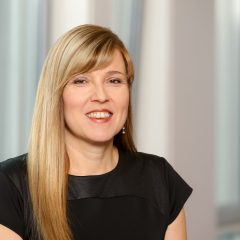
Christine Epler,
Head of HR-Strategy, Innovation & Diversity,
Deutsche Bahn AG
“For me, it is elementary to anchor diversity both top-down and bottom-up and to pursue a strategic and cultural approach. That is why diversity is also part of the approach of our HR director and is taken into account in all measures and decisions – eg. succession planning and talent management. It is also important to me, that our employees can actively contribute and receive support – this happens as part of DB’s internal diversity initiatives, but also through cooperation with external networks.”
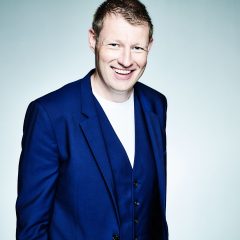
Matthias Wesselmann,
Vorstand,
fischerAppelt AG
“Stereotypes simplify marketing. Good, non-discriminatory marketing is much more demanding. You always have to work a little harder and think more intensively.”
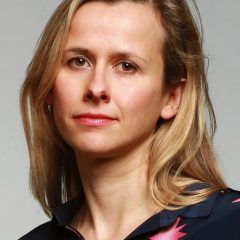
Felicia Mutterer,
Co-Founder & Managing Director,
Achtung! Broadcast GmbH
“Stereotypes are antagonists of diversity, but (unfortunately) human. We can all catch ourselves pigeonholing people according to our own rules – it’s just so beautifully simple. What helps: Reflection – break the stereotype – we have to rethink our own patterns.”
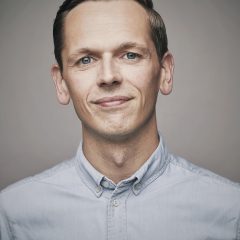
Ingo Bertram,
Pressesprecher & Co-Founder MORE*,
OTTO GmbH & Co KG
“Those who use clichés over the long term, contribute to the solidification of social prejudices. And yet we shouldn’t always take everything so seriously – and sometimes be able to laugh at ourselves. Stereotypes and diversity do not have to be mutually exclusive. It is more a question of dosage and packaging.”
Panel: breaking the glass ceiling
Moderatorin: Dr. Eva Voss

Eva Kreienkamp,
Vorstandsvorsitzende der Berliner Verkehrsbetriebe (BVG)
“Grundlage für mein Handeln ist den eigenen Weg zu finden, als Mathematikerin, CEO, Mobilitätsexpertin und Genderaktivistin. Und diesen Weg finde ich, weil ich Wegbegleiter*innen hatte und habe, die mich dabei ermutigen und unterstützen.”
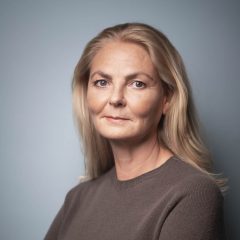
Ana-Christina Grohnert,
Vorstandsvorsitzende des Charta der Vielfalt e. V.
„Hinterfragt und brecht gesellschaftliche Rollenbilder und Denkmuster. Seid unbequem. Überzeugt Allies. Nur so können wir die gläserne Decke durchbrechen und Chancengleichheit erreichen.“

Angela Matthes,
CEO,
Baloise Life (Liechtenstein) AG
“To break the glass ceiling long-term and sustainably, we all need to work on our conscious and unconscious biases.”

Mena Mokammel,
Assistant Manager,
KPMG
“Bleib wie du bist! Wir Frauen müssen uns nicht verstellen oder besonders maskulin sein, um Erfolg zu haben. Wir können unsere Stärken zu unserem Vorteil nutzen und mit emphatischem Führungsstil Teams leiten und diese zu Glanzleistungen bringen.”
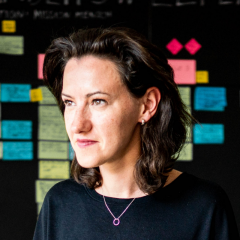
Claudia Feiner,
Project Manager Esports Community,
Porsche AG
“Sich für Diversity einzusetzen war schon immer People Business. Ich stelle immer wieder fest, dass es zuerst um Verbindung und den Menschen im eigentlichen Sinne geht und es erst die persönliche Ebene benötigt, bevor es um Arbeitsthemen gehen kann. Ich sehe wie Projekte in der Praxis ins Stocken geraten, weil dieser Punkt nicht genügend beachtet wird. Kluge Digitalisierung kann uns hlefen, für unsere Anliegen jeweils Verbündete zu finden, Netzwerke aufzubauen und zu pflegen. Uns verbindet mehr als uns trennt.”
talk: LGBT*IQ and racism
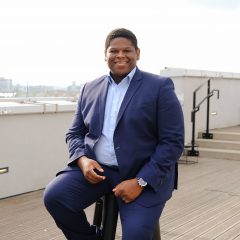
Lorenz Narku Laing,
CEO,
Vielfaltsprojekte
“It is perfectly clear that measures in the fight against discrimination always benefit those affected by different realities. The fight against heterosexism cannot be thought without also fighting against racism. Furthermore, it is important that both, in the racism-affected communities and in the LGBTQI * community consciously think about blind spots.”
Breakout Sessions
The power of collaboration
Employee networks play an important role in inclusion. While each network has its own specific goals and interests in mind, the networks can achieve even more impact in the company through further networking and selective cooperation, when it comes to diversity and inclusion. Interactively, we investigate the advantages of networking networks, how this networking can succeed and which best practices exist.

Patricia Heufers,
D&I Managerin,
EY
“All diversity dimensions have to be thought together, because only then we can achieve real inclusion. Through the cooperation of LGBT+ networks and women’s networks, the D&I agenda can be pushed forward together, for example.”
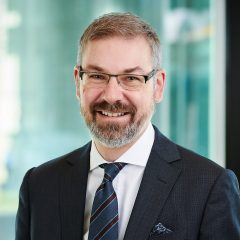
Bernd Krajnik,
Leader Strategic Initiatives,
EY Strategy and Transactions EMEIA
“Women as well as LGBTI need others to put their ambitions into action and to bring diversity & inclusion forward. It is perfectly obvious that we have to support each other as allies, also because a part of the LGBTI Community are women.”
the Dimensions of diversity and stereotypes in diversity communication
Communication on diversity, especially imagery, often solidifies stereotypes that we actually want to break down. The disabled person is shown in a wheelchair, people with an international background by people of color. There are also classic stereotypes for queer people. How can we communicate about diversity in a sensitive and inclusive manner without resorting to the visible (and often wrong) dimensions? How do you achieve good diversity communication that appeals to everyone?

Antonia Wadé,
Diversity Management,
AUDI AG
“The diversity dimensions are both cure and necessity at the same time. We need them for a KPI-driven diversity management. At the same time, we must not make the mistake of reducing the desired “mindset diversity” to measurable and comprehensible dimensions. Because what the dimensions do not show is inclusion.”
Innovation is driven by Diversity – how can we drive Inclusion?
Diversity is the Mix. Inclusion is making the Mix work. But how can we create a culture of inclusion?
In our workshop, we would like to exchange best practises with the participants and generate new ideas. How can Diversity Networks/Employee Ressource Groups work together? How do we bring the dimensions together? How do we manage to see employees as individuals with all their facets? What can individuals contribute?

Denise Hottmann,
Head of Diversity & Inclusion Germany,
Boehringer Ingelheim
“Ultimately, it is important that we see and value our employees as individuals. In all their facets, not just in one. Therefore, we at Boehringer Ingelheim focus on a culture of inclusion that let people be themselves.”
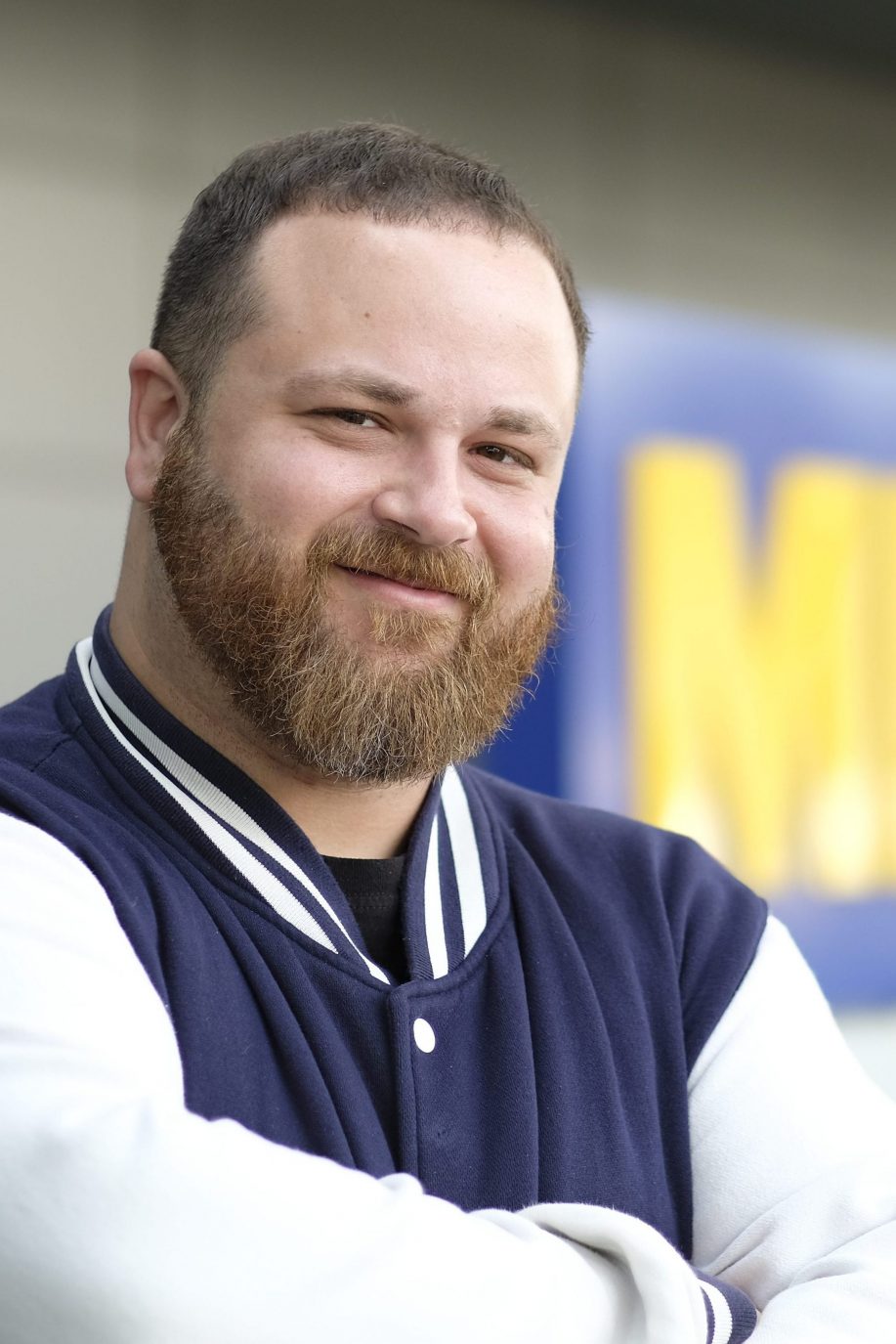
First place, GERMANY’S TOP 50 LGBT+ Voices 2020
“I want to maintain a daily dialogue about LGBT+ because unconscious bias is something that affects everyone. The more visibility I can give the subject, the more we will become aware of our unconscious thoughts.”
After studying logistics management, Nikita Baranov began his career in the commerce sector and was responsible for external IT partners and innovations at METRO AG from 2015 to 2020. He has been Executive Assistant to the CHRO since July 2020. In addition, as a spokesperson for the LGBT+ employee network METRO Pride and a core member of the women’s network WiT, Nikita promotes cultural change in order to make workplaces even more open.
Why are you involved in this topic at work?
Nikita Baranov: I want anyone who works for us or with us not to have to ask themselves the energy-sapping questions “Should I come out?” and “How much should I reveal about myself?” – I want them to be able to be who they are, with their entire identity. To come to work without having to fear being harassed, bullied or discriminated against just because of who they are. Not only to be diverse and integrated, but also to have a feeling of belonging.
What responses do you get to this?
Nikita Baranov: I get positive responses to my involvement, but I also notice that the topic of LGBT+ is not always considered an integral part of Diversity & Inclusion by all employees. That’s why we need to continually raise people’s awareness because only a diverse workforce can meet our goal of producing creative and innovative solutions for our equally diverse customers.
What can we all achieve by getting involved in LGBT*IQ networks?
Nikita Baranov: I’m convinced that only by joining forces will we manage to eliminate discrimination at work in order to promote equal rights. Networks help us increase visibility, and company-wide projects have a bigger reach and significance. One thing is certain: we’re all fighting for a common cause, and alliances can only be beneficial.
Since July, you have been Executive Assistant to the Chief Human Resources Officer at METRO AG – will this enable you to make LGBT*IQ topics even more visible?
Nikita Baranov: Above all, I firmly believe that, regardless of role or position, everyone has a voice and a platform that they should use to promote LGBT+ topics. As LGBT+ diversity is a key part of our corporate culture, I’m happy to be able to make the topic even more visible.
You’re often seen with a rainbow – what does it mean to you to be out and visible?
Nikita Baranov: I want to maintain a daily dialogue about LGBT+ because unconscious bias is something that affects everyone. The more visibility I can give the subject, the more we will become aware of our unconscious thoughts. Being out at work and not having to hide my identity is a prerequisite for showing myself as a whole person and performing at my best.
The interview was conducted as part of GERMANY’S TOP 100 OUT EXECUTIVES. This list is a joint project with the UHLALA Group and is now available online.
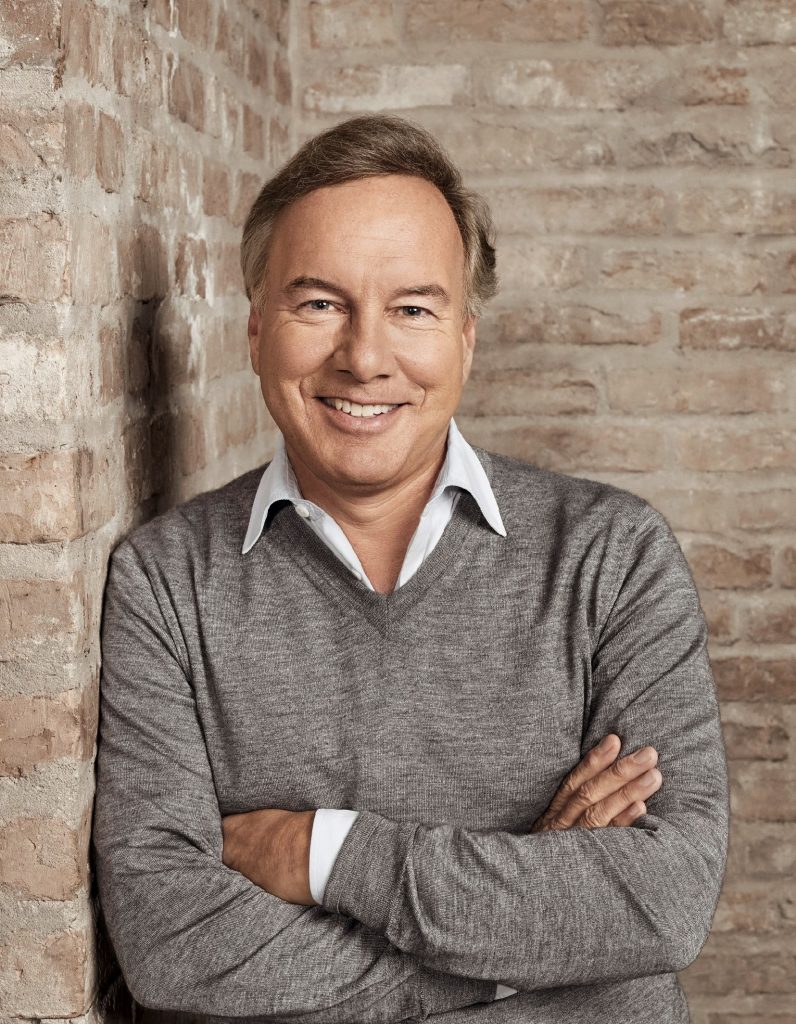
First place, GERMANY’S TOP 100 OUT EXECUTIVES 2020
“Managers shape a company’s culture. The more openly we practice diversity, the more open our dealings with each other become.”
Nico Hofmann, who was born in Heidelberg in 1959, is one of Germany’s leading film and television producers and CEO of UFA. He has been responsible for some of the most successful films and series of the past two decades. Together with Bernd Eichinger, Nico Hofmann launched the young talent award FIRST STEPS in 1999. He has won numerous national and international awards for his work as a director and producer.
Nico Hofmann, many congratulations on being ranked no. 1 in GERMANY’S TOP 100 OUT EXECUTIVES list. You were already on the list last year – what responses did you receive as a result of that?
Nico Hofmann: Thanks! I’m delighted, although I see the list of Out Executives as more of a platform for dialogue than just a ranking. After I was ranked 12th last year, I was able to create lots of contacts with other colleagues from the list. That’s very valuable. It’s important to make diversity visible and the Out Executives list is a very interesting way of doing that.
Being out at work – what does that mean in a leadership position?
Nico Hofmann: Managers shape a company’s culture, so the significance shouldn’t be underestimated. However, the need for diversity and the energy come primarily also from the employees themselves. The younger generation in particular are making very strong calls for this – something we have a keen sense of at UFA. The company has changed in the past five years, becoming much more female and much younger. And the more openly we practice diversity, the more open our dealings with each other become. Today we discuss things differently and cast roles differently as well. UFA’s parent group Bertelsmann has the be.queer network, which we became part of by creating be.queer@UFA. Here, too, a lot of the initiative stemmed from our employees.
Nevertheless, the German film industry in particular could still do a lot more about diversity. How do you see your own role here?
Nico Hofmann: I very clearly have a political agenda. I appear in the media and talk about the subject. Germany is about five years behind the USA in this area, but things are moving. Together with the media industry magazine DWDL.de, we had planned to hold a diversity summit for the film industry in Cologne this year. Unfortunately, it had to be cancelled due to the coronavirus pandemic. But the summit will take place next year because the demand for it was very strong. The major channels had confirmed their attendance, the tickets were quickly sold out and big names were set to appear on the panels – that tells me how topical the subject is for the film industry.
LGBT*IQ people still barely feature in German film and television productions, and when they do, they often have very clichéd roles. What is being done to change this?
Nico Hofmann: Diversity has long been visible in our daily dramas such as “GZSZ” (“Good Times, Bad Times”), and we have currently begun filming our queer series “All You Need” for the public channel ARD – this wouldn’t have happened a few years ago. If we show LGBT*IQ people as a perfectly normal part of films and series without turning them into victims or resorting to clichés, my hope is that, in society as a whole, they can develop their own self-identity because this has become an entirely natural thing to do.
What’s more, today we have a different generation of creatives. I teach at the Film Academy in Ludwigsburg and some of my best students there are from minority ethnic groups and approach topics in a completely different way. I’ve also had the opportunity to support the development of several transgender students at the Film Academy and I’m seeing a generation come through that has a very strong need for diversity.
The interview was conducted as part of GERMANY’S TOP 100 OUT EXECUTIVES. This list is a joint project with the UHLALA Group and is now available online.
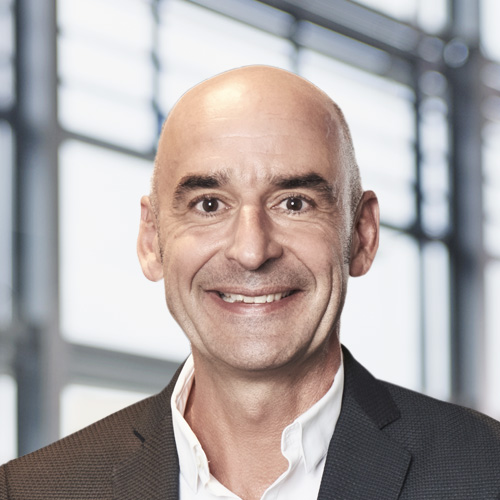
PROUT EMPLOYER Campana & Schott
“Openness and tolerance are here to stay.”
Dr. Christophe Campana is the founder and managing director of Campana & Schott. He has over 25 years of experience in (top) management consulting and is a member of various expert and advisory boards. His main areas of focus include “strategic project and portfolio management” as well as “new forms of collaboration” with a special focus on social collaboration. Dr. Christophe Campana is the author of over 50 publications on the subject of project and portfolio management.
In simple words, Campana & Schott is providing advice to their customers on strategies to keep their finger on the pulse. What role does diversity play here?
Dr. Christophe Campana: Events such as climate change, radicalization, populism, etc. have led to the point that more and more people are concerned with meanings and values. Most people have recognized that “healthy” progress and prosperity cannot be done without moral values and sustainability. Diversity is one of these values and therefore an essential part of this overarching development. Excluding people due to their sexual orientation promotes hatred and prevents a sustainable better future for everyone. There is still a lot to be done here.
Campana & Schott received three awards as a “Great Place to Work”. The list of your commitments towards the diversity of your employees is long and you are building on long-term cooperation instead of “hire and fire”. Has the PROUT EMPLOYER cooperation been the last piece of the puzzle for an open and inclusive work environment?
Dr. Christophe Campana: There will probably never be that one last piece of the puzzle. For us, the cooperation with PROUT EMPLOYER is an important part of our commitment, which we are constantly developing further. I keep learning new things, e.g. only recently the Federal President Steinmeier made a very clear point in the context of the anti-racism riots where he said: “It is not enough to not be a racist. We have to be anti-racists.” This view also applies to me with regard to diversity and our corporate culture. I am convinced that in the future there will always be topics that managers should deal with in the interests of their company: openness and tolerance are here to stay.
“I understood that as an entrepreneur you have to take a visible and public position on this in order to reach out to the community and signal: Live your sexuality as you want: openly or not – both are fine.”
What advice would you give to companies that are just starting their commitment to LGBT*IQ diversity?
Dr. Christophe Campana: At Campana & Schott there have always been employees who have lived out their homosexuality openly. Therefore, homophobia had no place in our company. For a long time, I believed that this was enough. Only later, I understood that as an entrepreneur you have to take a visible and public position on this in order to reach out to the community and signal: Live your sexuality as you want: openly or not – both are fine. But if you want to live it openly, you will not suffer any disadvantage in our company. It’s just a small step, but it does a lot – and only good.
From our experience we know that LGBT*IQ diversity has the greatest impact in a company when executives, diversity management and the company’s corporate networks regularly come together. Is that also your recipe for success?
Dr. Christophe Campana: Yes, I myself regularly meet with our LGBTQ+ network and have learned a lot from these meetings, e.g. the so-called “Monday lie”, when colleagues chat with each other during the coffee break about the last weekend and some prefer to describe their life partner as “a friend”.
I could immediately emphasize the stress associated with this white lie when my employees told me that they had felt like this for very long periods of time, sometimes even years. That is why the close exchange is so crucial: You start to better understand the problems of the community and can actually start changing things more targeted.
The last question: There are turbulent times coming for employees. Considering your commitment to diversity, how would you react to the statement that starting from now, there are more important topics than LGBT*IQ diversity?
Dr. Christophe Campana: There is a difference between the urgency and the importance. The unexpected severity with which the corona pandemic has affected all areas of life resulted in existential challenges for many companies which we will have to deal with. Just because you douse a fire in an apartment doesn’t mean that your general life in the apartment becomes unimportant. This crisis overshadows many issues, which, however, do not become irrelevant – on the contrary: I am convinced that companies with an open and appreciative culture will get through the crisis better. Diversity is an essential part of corporate identity and contributes to the performance and resilience of an organization.
Dear Dr. Campana, thank you for talking to us!
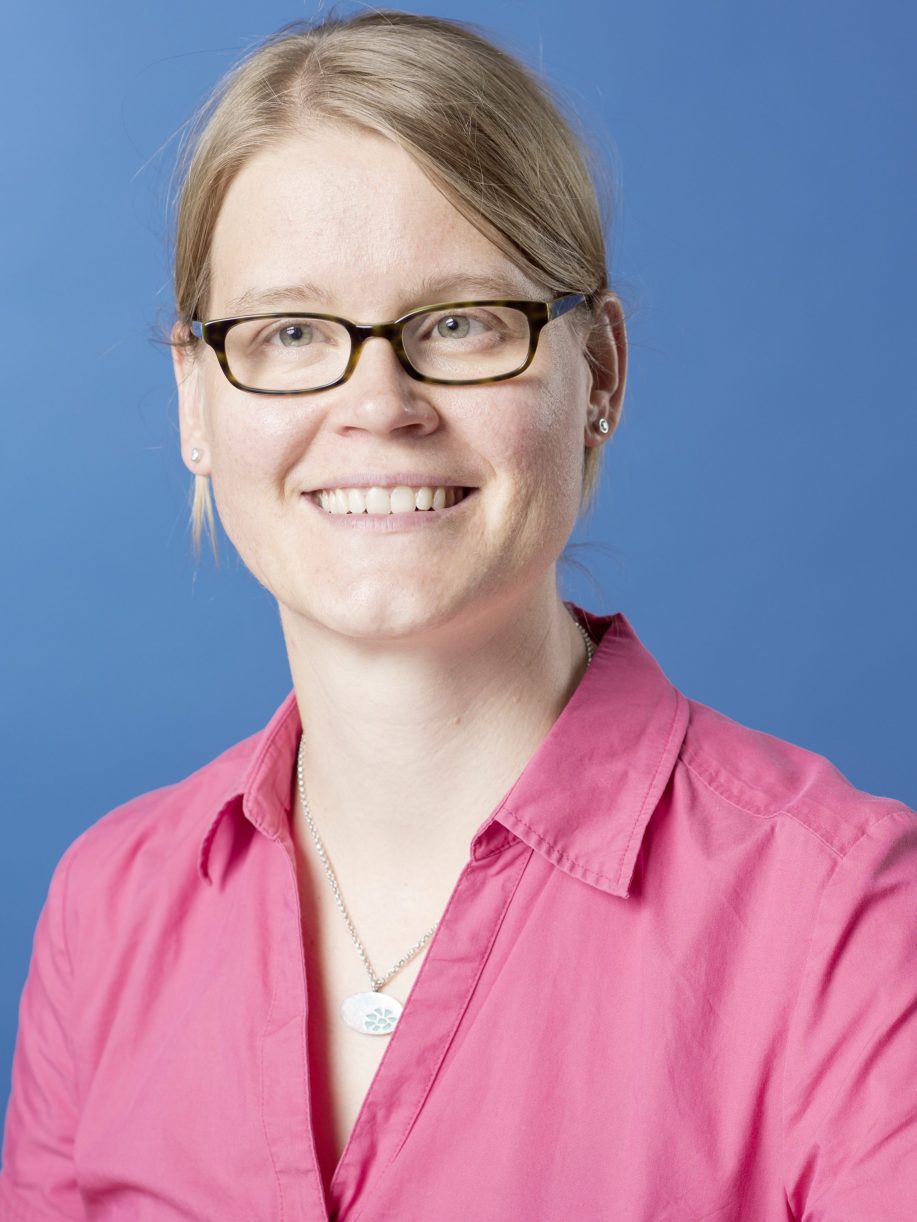
PROUT EMPLOYER Google Germany
“We support you! Now and always! That’s what PROUT EMPLOYER says, and that’s why it’s important to us at Google.”
As Director of Client Solutions, Dr. Jannika Bock is responsible for the sale of Google’s advertising products to major customers in Central Europe. She is the Exec Sponsor of GayglerDE, the LGBTQ+ Community at Google Germany GmbH. Before Jannika switched to Google in 2008, she worked, amongst others, for Axel Springer AG. She did her PhD in American literary and cultural studies, i.a. at Harvard University, and is a member of the digital advisory board of TAKKT AG.
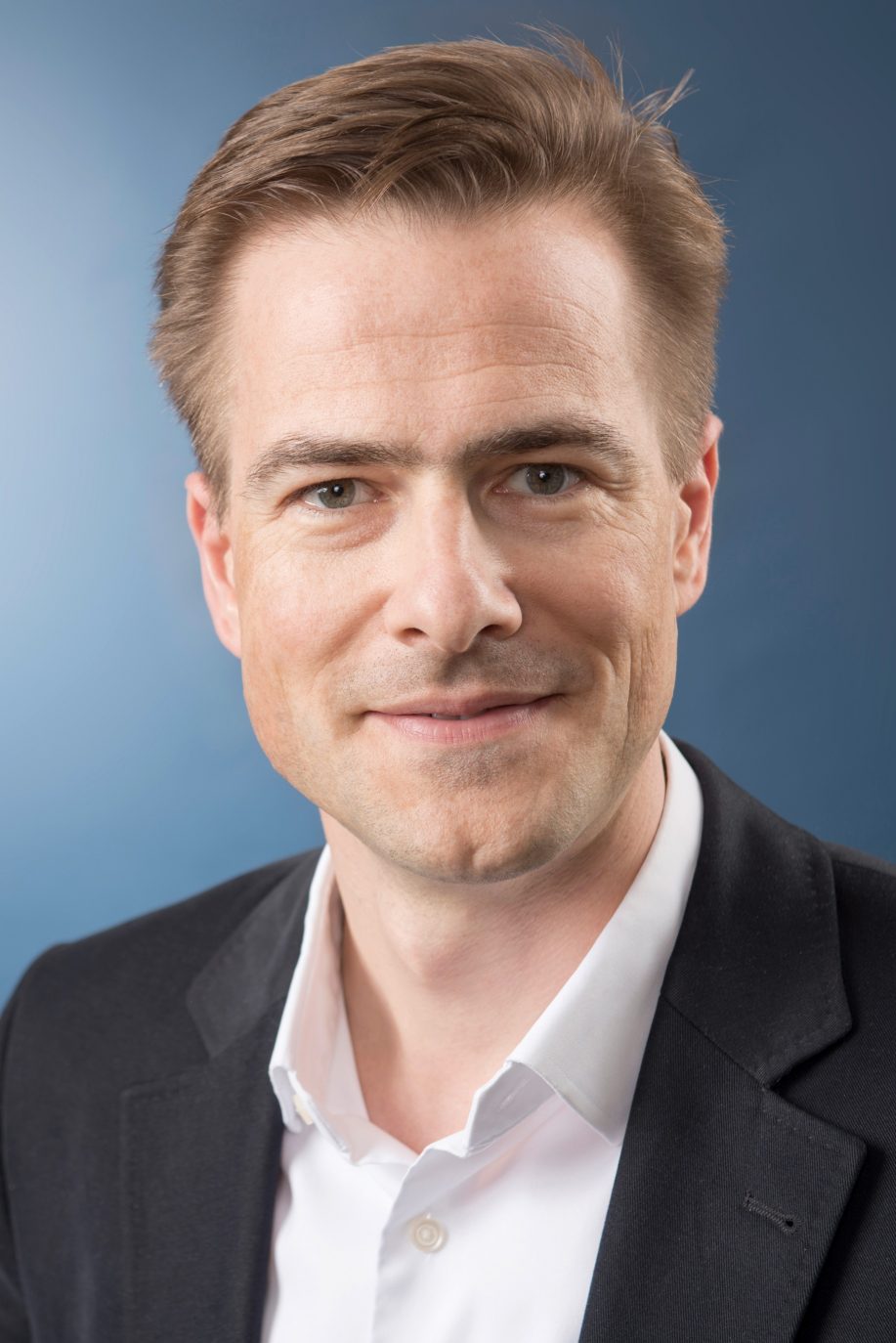
“We want to be a company that promotes diversity and lives integrity and inclusion.”
As Vice President of Central Europe, Philipp Justus heads Google’s business in 36 countries, including Germany, Austria, Switzerland and the CEE countries. Before joining Google in 2013, Philipp was CEO of Zanox, the Berlin performance marketing network, and held various management positions at eBay and PayPal, including VP of Europe, SVP of Auctions and SVP of Global Markets. Philipp studied business administration at WHU in Koblenz and received an MBA from the Kellogg School of Management at Northwestern University.
As a sponsor and member of the foundation’s advisory board, Google has been associated with PROUT AT WORK since the beginning. Why did you decide to become a PROUT EMPLOYER?
Jannika Bock: Currently, it is important to demonstrate to the public that we at Google advocate equality for people in the LGTBQ+ community. This year, the CSD parades were canceled in Germany. As a result, a lot of visibility got lost. We would like to work against this: We support you! Now and always! That’s what PROUT EMPLOYER says, and that’s why it’s important to us at Google.
In order to keep setting new goals as well as keep up with diversity & inclusion, Google also relies on the possibility of self-identification, e.g. as trans *, non-binary or LGBT*IQ. Can data really depict the people behind your employees?
Philipp Justus: We want to be a company that promotes diversity and lives integrity and inclusion. We want our employees to picture the diversity of our users – this is the only way we can develop products that are actually accessible and usable for everyone. We want to create an environment for our employees in which they affiliate themselves with. This includes demonstrating the diversity of our workforce which is, for example, possible through the process of voluntary self-identification.
“In Germany there are still many, many people who cannot be themselves at work.”
Covid-19 somehow surprised all of us and we now have to deal with it. In your opinion, why does diversity and especially LGBT*IQ diversity has to remain in the focus?
Philipp Justus: In this PRIDE season, digital media have been more important than ever – for the first time, on YouTube with PRIDE LIVE there was a German-wide, completely virtual PRIDE event on June 27th 2020, attended by politicians, companies(such as Google), and many activists from the scene. There has been a space created to come together – a space that, unfortunately, couldn’t be on the streets this year.
Where do you see the major challenges for LGBT*IQ in the workplace in the coming years?
Jannika Bock: In Germany we often encounter the fast assumption that everything has been achieved and that there would be no discrimination against members of the LGBTQ+ community anymore – especially not in companies that actively campaign for greater diversity. However, this does not correspond to reality. In Germany there are still many, many people who cannot be themselves at work. There are people who hide their (sexual) identity from colleagues and superiors – for fear of discrimination and who are exposed to “micro aggressions” in form of taunts and hidden jokes. That has to stop!
